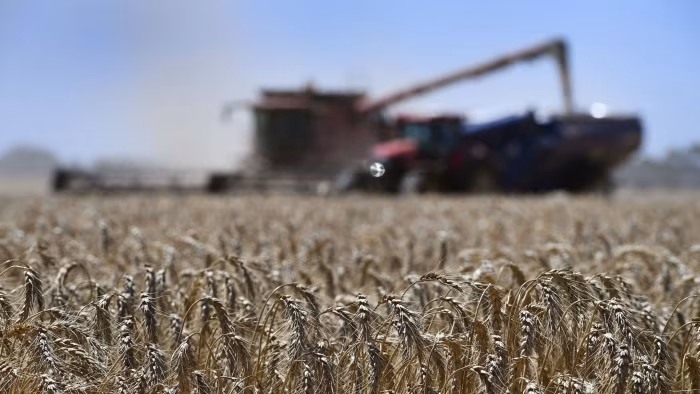- S. Arabia, Pakistan sign youth tech pacts Dawn
- Saudi Arabia, Pakistan sign youth technology pacts Dawn
- Punjab unveils tax-free Saudi industrial estate to attract Gulf investment The Express Tribune
- Pakistan pitches over $28 billion…
Blog
-
S. Arabia, Pakistan sign youth tech pacts – Dawn
-
26 new dengue cases emerge in capital – Dawn
- 26 new dengue cases emerge in capital Dawn
- 19 new dengue cases reported in Rawalpindi Dawn
- Fever pitch: Ludhiana’s dengue crisis double in a fortnight. Times of India
- Latest health news: Dengue cases in Islamabad rise to 26 samaa tv
- Stay alert…
Continue Reading
-
TLP march forces its way to Muridke – Dawn
- TLP march forces its way to Muridke Dawn
- TLP protesters set up overnight camp in Muridke; dozens injured during clashes Dawn
- TLP begins protest march amid deadly clashes The Nation (Pakistan )
- Protests by religious party paralyze Islamabad,…
Continue Reading
-

How to Find and Catch Ashclaw in Fisch
The Ashclaw Crab is one of the Cataclysmic fish in Fisch and a rare trophy for any dedicated fisher. This dangerous-looking creature, inspired by the King Crab boss of Dig, radiates magma and fury. In this guide, learn where to find the…
Continue Reading
-

Hamas is back in Gaza City as truce with Israel begins
Hours after Israel withdrew its troops from Gaza City in the opening stage of a US-brokered ceasefire, tens of thousands of Palestinians trudged back to sift through bombed out buildings overseen by Hamas security operatives.The Hamas interior…
Continue Reading
-

Nelly faces major victory in St. Lunatics lawsuit
Nelly wins lawsuit against St. Lunatics’ Ali as judge sanctions lawyers Nelly has won a legal battle in Missouri federal court after a judge dismissed a lawsuit filed by his former St. Lunatics bandmate, Ali…
Continue Reading
-

Afghan Taliban confirm ‘retaliatory’ border attacks on Pakistan
The Taliban government has confirmed that it attacked Pakistani troops in multiple mountainous locations on the northern border.
Casualties are not yet clear in what the Taliban called “retaliatory operations”, after it said Pakistan violated…
Continue Reading
-

Australia battles ‘superweeds’ threat to key wheat exports
Unlock the Editor’s Digest for free
Roula Khalaf, Editor of the FT, selects her favourite stories in this weekly newsletter.
Charlie Baldry, a fifth-generation wheat farmer outside Cootamundra in rural New South Wales, kicked a patch of waxy weeds that, left unchecked, could wipe out his crop.
“If it gets away from you, it can wipe out a whole paddock,” he said. “It’s public enemy number one.”
Wimmera Ryegrass is a scourge for Australian wheat farmers. The red-stemmed grass, introduced in the 1880s as grazing fodder, has since spread to more than 8mn hectares of grain crops across the country. It now costs farmers about A$93mn (US$61mn) a year in lost revenue, according to the Grains Research and Development Corp.
It is also among the most resistant to herbicides, according to scientists, with farmers and agribusiness racing to find new chemicals to fight the weed that threatens one of the country’s most important export crops.
That effort has taken on added urgency. Canberra is set to rule by the end of the year on the use of the pesticide paraquat, which is already banned in many countries due to health and environmental concerns. Global opposition to other herbicides such as Bayer’s glyphosate has also grown, including from US health secretary Robert F Kennedy Jr.
Jack Hogan, an agronomist who works near Cootamundra, said restrictions on paraquat would make life much harder for farmers already struggling with weed resistance.
Wimmera Ryegrass, introduced in the 1880s, has become a scourge for Australia’s wheat farmers © Zhbampton/Dreamstime “If the paddocks are already resistant . . . the paraquat review presents a major challenge,” he said. “It’s pretty scary.”
The Australian Pesticides and Veterinary Medicines Authority, a regulator, declined to comment.
Farmers have long tried to suppress ryegrass growth by rotating crops and animals, as well as with cocktails of pesticides including paraquat, glyphosate and clethodim. Even a small patch of ryegrass often requires farmers to resort to “double knocking” — or dousing the entire field with two pesticides — which can result in the loss of the entire crop.
“Uncontrolled weeds can easily lead to 40 per cent of losses in a harvest. Sometimes it doesn’t make sense to harvest at all,” said Victoria Corless, chief executive of herbicide developer Moa Technology.
Australia’s wheat industry is a major contributor to domestic and global food supplies, and saw an uptake in demand after Russia’s full-scale invasion of Ukraine in 2022. Exports are projected to hit A$9.7bn (US$6.4bn) in the 2026 financial year, according to government data.
“Australia plays a critical role in supplying Asia with wheat, and accounts for over a 10th of global wheat exports,” said Dennis Voznesenski, an analyst with Commonwealth Bank and author of War and Wheat.
But the industry has been suffering what Corless called an “innovation drought” in new herbicides, leaving farmers without new products to combat increasingly resistant “superweeds”.
“Nature will find a way to evolve its defences,” she said. “In agriculture, if you’re not looking at the weeds, you’re in trouble.”
Weed resistance is particularly prevalent in Australia, making the country a useful laboratory for the next generation of herbicides.

Tom Clark, head of trials at Moa, examines ryegrass shoots in a canola field © Nic Fildes Bayer, the German agritech company behind glyphosate, has been testing icafolin-methyl, its first novel herbicide in three decades, in Horsham, Victoria, via a programme with the government-backed GRDC.
It was developed with “CropKey”, a predictive analytics tool that Bayer hopes will speed up pesticide research and development.
“We’re very hopeful the pipeline will deliver products useful for Australia and other countries as well,” said Tony May, head of sales at Bayer’s Australian crop science division.
He noted that the costs and timeline for bringing a new herbicide to market have more than doubled over the past 20 years due to more stringent human and environmental safety regulations.
Moa, meanwhile, is an Oxford university spin-off that tests potential herbicides against prehistoric ancient plant species.
“Australia has more types of weeds that are resistant to herbicides than anywhere else,” said Moa’s head of trials Tom Clark, adding that the country started observing glyphosate resistance three decades before the UK.
The company is also testing “amplifier” products that are added to existing pesticides to improve effectiveness and can be brought to market faster.
In Canowindra, 150km north of Cootamundra, Clark examines the stubble of a canola field to see how ryegrass shoots are reacting to various doses of Moa’s herbicides.
“If you can kill them in Australia then you know you’re doing well,” he said.
Continue Reading

